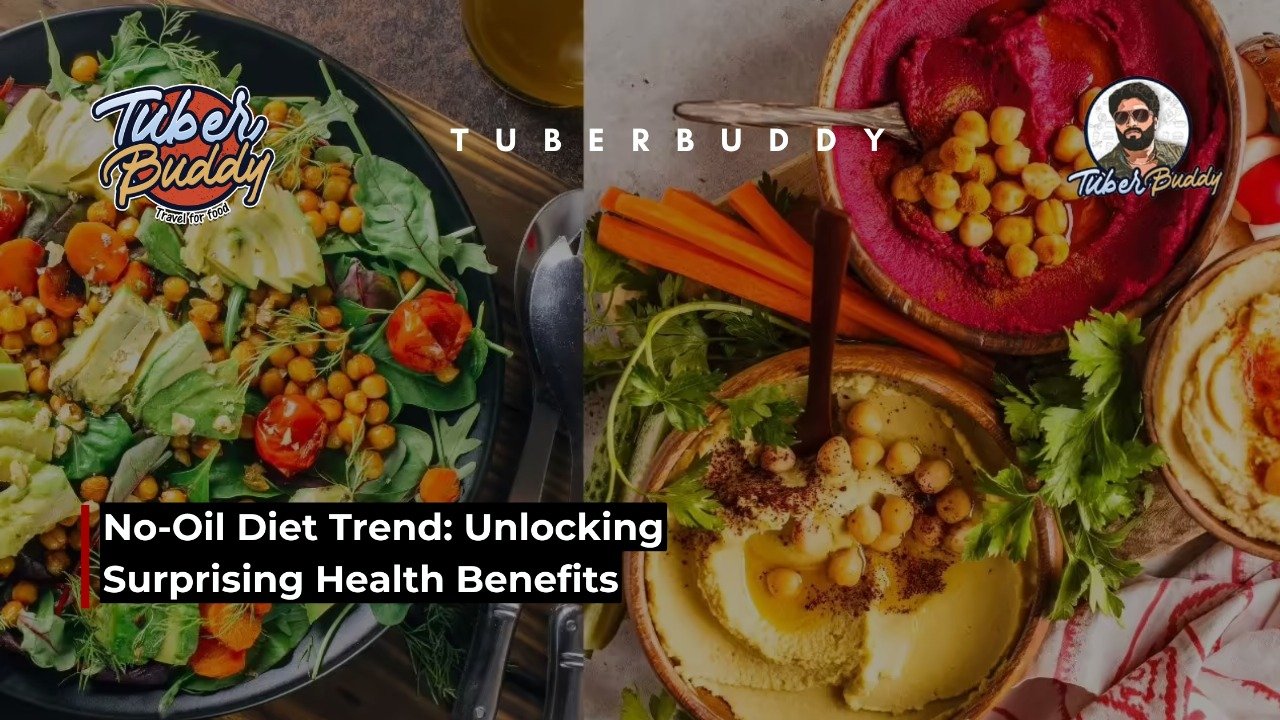The No-Oil Diet Trend: A New Approach to Healthy Eating

You might have noticed some diet trends making regular appearances on your phone; to name a few, “magic” smoothies, odd detoxes, or some new superfood. Some of them vanish even before you have had a chance to learn their pronunciation however, one idea which garneres attention pretty consistently: the No-Oil Diet.
You might be raising your eyebrow and thinking “no oil diet”. Just like, No oil, not even a drizzle of what you like to call “counters” to what you think is some healthy sprinkles to your meals. Absolutely not. Instead, you get your fats from what is called “the right way” from complete foods like nuts, seeds, and wholesome like avocados and even olives.
Especially when people started claiming on social media, “I remotely gasped and I have so much energy,” “My skin started glowing,” or “I didn’t realize the weight I was in before crying the oil-free life.” I mean, what was I thinking.
So, What is the No-Oil Diet?
It is rather simple: With the no-oil diet, you adhere to the principle of no extracted oils, meaning anything that has been pressed or processed into pure fat is off the table. Instead, you consume food in its whole form. For example, whole sunflower seeds are allowed, but sunflower oil is forbidden
With the food you consume, you’re not just getting fat. You’re also getting important vitamins, minerals, and plant compounds oil processing removes. You’re basically not trading anything for “just the calories.”
Why Is Everyone Stopping Oil Use?
Some people do it for heart and cholesterol health, and others just want to eat more whole, unprocessed food. Everyone seems to have their own reasons.
Some of the key motivators I repeatedly came across include:
- Eliminate oil and you shall lose weight without exercise and “calorie math.”
- Focus on heart health.
- Easier to digest.
- Skin benefits.
What You’ve Seen and Tasted
Improvement is noticed not just in fat reduction, but with overall lifestyle change. Oil is not just a fat, so the reduction of oil in food leads to various lifestyle adjustments, and people say:
- Lower cholesterol levels – This applies to people who previously used cooking oils rich in saturated fats.
- Steadier energy – No more post-pasta energy slumps.
- Better blood sugar balance – Optimally managing processed fats aids in regulating carbohydrates is crucial.
- Feeling less bloated – This seems to be a frequent topic of discussion.
A friend of mine mentioned that she didn’t notice how sluggish she was until she made a shift to a better diet. The switch made her feel way more focused and alert all day long, which she continues to enjoy.
Making the adjustment to no oil diets signals more creativity in the kitchen.
Let’s not kid ourselves – removing oil from your diet without a strategy is going to remind you of the drastic change. It does not have to feel like a form of punishment, however.
Check out these tips that people find to be very useful:
- Replace oils with whole-food fats – Avocado on your toast, a sprinkle of hemp seeds on your salad, or tahini in your salad dressing.
- Change the way you cook – Steam, air-fry, roast veggies on parchment, or sauté in broth instead of oil.
- Use bold and strong seasonings – Garlic, fresh herbs, ginger, smoked paprika, or citrus juices.
Discover cuisines with lower oil content – Many dishes from Japan, Korea, and the Middle East are high in spices but low in oil.
Once you begin experimenting, you understand that oil isn’t the only way to enhance the satiating quality of food.
Who Could Enjoy This Approach to Eating?
Truth be told, anyone can try it, but it’s more relevant to:
- Individuals who wish to shed pounds without measuring portions.
- Those concerned about high cholesterol or heart-r
- Individuals who are annoyed with oily skin or digestive problems.
- Those with a ‘mostly vegetarian’ diet who wish to refine it further.
“You won’t get enough fat.” No need to worry — whole foods have nuts, seeds, and avocados.
“Your food will taste bland.” Meals can be enhanced with herbs, spices, and acid like lemon or vinegar.
“It’s impossible to cook without oil.” Dishes can taste better without oil than with.
Conclusion
You don’t have to be perfect or follow a rigid structure. Eating less processed foods with less added sugars and more whole, nutrient-dense foods is a gentle nudge to follow. Start small — replace oil with broth in your stir-fry tomorrow, or roast your veggies dry and season after.
Your taste buds can surprise you. You will appreciate the taste of the food rather than the oil disguise it is cooked in.
